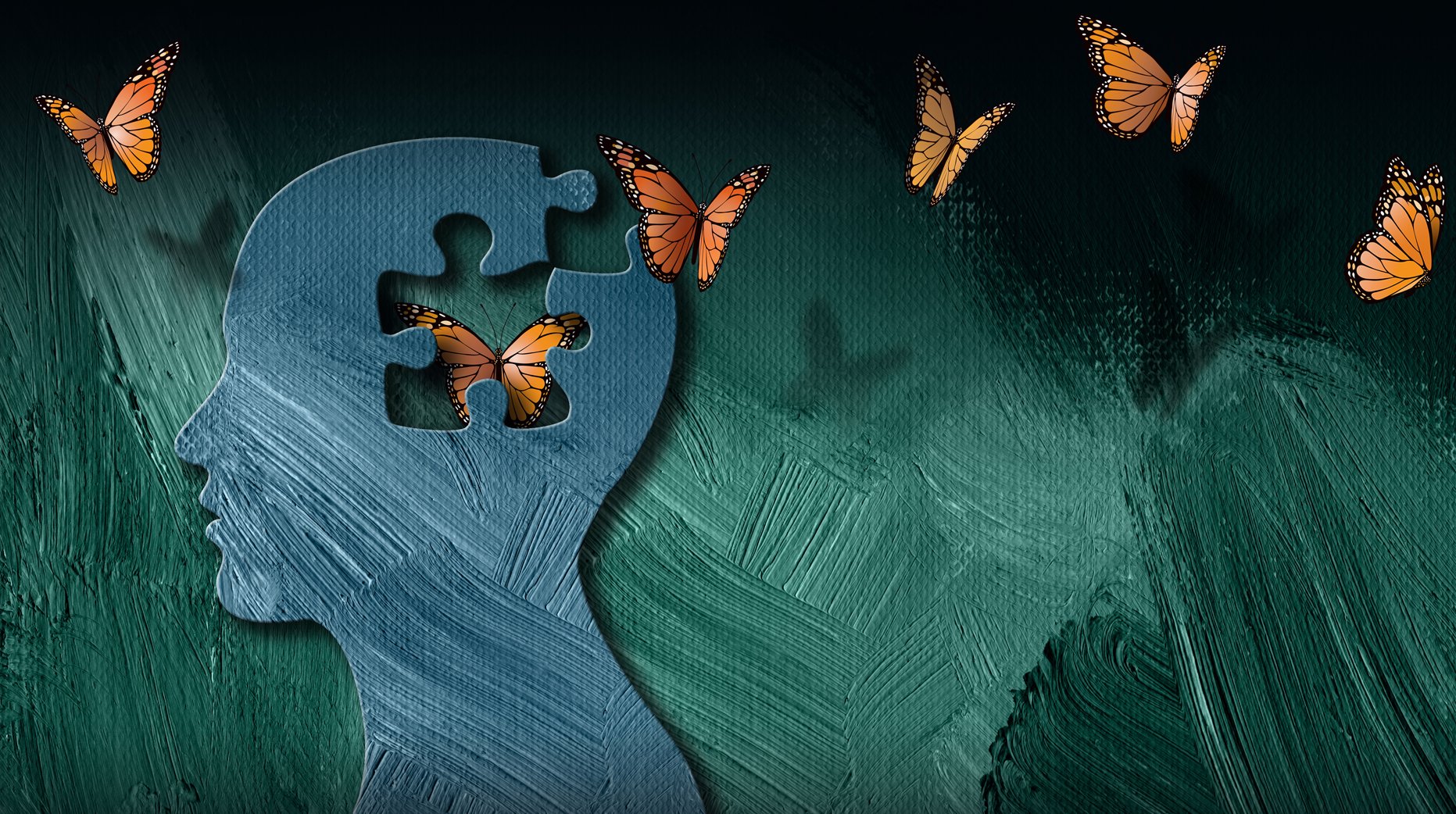Biohacking Your Body for Better Sleep
The term “biohacking” may bring nefarious images to your mind, such as criminals sneaking around trying to take over your body. While this notion may be dangerous and even a little seductive, in reality, wellness coaches mean something else entirely. Biohacking means optimising your total body by changing your environment (inside and outside).
Our bodies are incredible machines full of billions of moving parts. To be at our very best, we need to ensure the proper balance between all of these parts, from the neurons in the brain, to the way the heart pumps, to how our gut handles food. Humans need certain things to survive, including oxygen, water, shelter, food and sleep. Without sleep, our brains start to change, and these changes can impact the body and our overall health and wellbeing.
No Sleep = Altered Brain Patterns & Anxiety
The amygdala is part of the limbic system, which controls instincts, emotions (including fear) and mood. Damage, developmental issues or neurotransmitter (the chemicals in your brain) imbalances can cause dysfunction, manifesting as anxiety, depression, phobias and PTSD. Anxiety begins in an area of the amygdala responsible for longer-lasting responses, resulting in someone feeling a threat long after it diminishes.1
Unfortunately, sleep loss and anxiety go hand in hand, often forcing sufferers into a vicious cycle, which can be extremely difficult to break from. Neuroscience has found that sleep loss amplifies the response in the amygdala when we anticipate something, leading to increased anxiety. When your brain is fatigued, your amygdala is in a heightened state, ready to react to whatever threat is contributing to the fatigue.2
Biohacking Your Body To Have A Good Night’s Rest
There are many technological gadgets available to help you biohack your body, from neurofeedback devices to hyperbaric oxygen pods. But, you don’t need to spend anything to improve your sleep and help reduce anxiety.
Dr Satchin Panda, an expert in circadian rhythms has studied how lights reset our internal clocks, affecting sleep, and how food also impacts our circadian cycles. According to Dr Panda, each organ has its own circadian clock, so it isn’t just the brain that tells us we need to sleep.
Our brain isn’t the only organ which needs to rest, either. The liver can function for a certain number of hours, and then it needs time off. Even the bacteria that live in our guts have a daily clock. When all of these moving parts inside of us synchronise, we will experience high performance. But without sleep, these pieces break down, and instead of being balanced, we’ll be out of sorts and conditions such as anxiety and depression can occur.3
Your day actually begins when you go to bed the previous night because that determines how long you’ll sleep, how long you’ll reset your brain and then how fresh you’ll wake up in the morning.
Dr Satchin Panda
How To Get Your Body On Board With Better Sleep
Wanting to make changes is only part of the equation if you’d like to biohack your sleep. You have to figure out what you’re doing wrong, too. If you want to sleep better, increase performance and feel less anxious, you have to look for the red flags. Ask yourself these questions:
- Are you having a hard time falling asleep? Take a good look at your sleeping area. Your bed should be reserved for sleep and sex. No working, no watching TV and ideally no browsing your device. Consider the temperature, the bed itself and ambient light sources. Creating the perfect sleep space may require some effect, but you’ll likely find the reward is worth it!
- Are there lots of melatonin-suppressing blue lights around? Blue lights seem to have a bad reputation lately, but they aren’t always bad. During the day, these wavelengths boost attention and mood. At night, however, these same wavelengths suppress melatonin levels, which influence circadian rhythms. LED lights, even though energy-efficient, produce more blue light. Limiting exposure to bright screens two or three hours before bed can help your body adjust.4
- Have you considered intermittent fasting? When you fast, your body enters a different metabolic state, relying less on glucose and more on ketones. Eating at certain times (dubbed time-restricted feeding) allows your body to fast daily, which can have multiple positive effects. Essentially, you consume all the nutrients you need during a window of time, and you abstain the rest of the day.5
Isn’t It Time To Take Control Of Your Health?
The “always on” approach that modern society seems to demand, particularly for leaders, is ultimately unsustainable. Without balance, we cannot make good decisions, engage in collaborative endeavours or come up with new ideas. If you look at a brain image of someone who doesn’t sleep much, you see poor functioning and areas of inactivity; basically, a brain that has aged before its time.6
The i4 Neuroleader Program can help you develop a high-performing mind and body. Recognising the importance of sleep, and how even what we eat can impact our sleep is the first step to making big changes. If you’d like to learn more about gut health and overall wellbeing on your leadership journey, watch our award-winning documentary Make Me A Leader.
Biohacking isn’t a figment of the future, it’s possible now, so are you ready to take control of your biology?
Citations:
- Edwards SP. The Amygdala: The Body’s Alarm Circuit. The Dana Foundation. 2019.
- Goldstein AN, Greer SM, Saletin JM, Harvey AG, Nitschke JB, Walker MP. Tired and apprehensive: anxiety amplifies the impact of sleep loss on aversive brain anticipation. J Neurosci. 2013;33(26):10607-15.
- Asprey D. Eating Affects Your Sleep (and vice versa) - Satchin Panda #560. Podcast interview with Dr Satchin Panda. Bulletproof 360, Inc. 2019.
- Harvard Health Letter. Blue light has a dark side. Harvard Health Publishing. 2018.
- Longo VD, Panda S. Fasting, Circadian Rhythms, and Time-Restricted Feeding in Healthy Lifespan. Cell Metab. 2016;23(6):1048-1059.
- McLennan K. Building Leaders for the Imagination Age: The Case for the i4 Neuroleader Model. About my Brain Institute. 2016;1. [White Paper].
- i4 Neuroleader (353)
- Leadership & Culture (336)
- Brain Health & Wellbeing (206)
- Innovation (97)
- Performance (85)
- Our News (79)
- Collaboration (68)
- Agility (53)
- Practitioner Stories (44)
- In The Press (36)
- Make Me A Leader (33)
- Balance (31)
- Integration (30)
- Imagination (29)
- Awareness (23)
- Brain-Friendly Channel (22)
- Brain-Friendly Leadership (22)
- Communication (22)
- Curiosity (21)
- Inspiration (19)
- Intuition (19)
- Attitude (17)
- Courage (16)
- Adaptability (14)
- Case Studies (14)
- Drive (14)
- Generosity (13)
- Ethics (9)
- Mental Readiness (9)
- Influence (8)
- Retreat (8)
- Brain-Friendly Leadership (1)
- Oracle Cards (1)
- 1 November 2025 (2)
- 1 September 2025 (3)
- 1 August 2025 (5)
- 1 July 2025 (5)
- 1 June 2025 (2)
- 1 April 2025 (1)
- 1 March 2025 (8)
- 1 February 2025 (3)
- 1 September 2024 (4)
- 1 July 2024 (2)
- 1 June 2024 (6)
- 1 May 2024 (2)
- 1 April 2024 (3)
- 1 March 2024 (1)
- 1 November 2023 (1)
- 1 August 2023 (1)
- 1 July 2023 (2)
- 1 June 2023 (2)
- 1 May 2023 (4)
- 1 April 2023 (2)
- 1 March 2023 (7)
- 1 February 2023 (4)
- 1 January 2023 (1)
- 1 September 2022 (1)
- 1 May 2022 (3)
- 1 April 2022 (1)
- 1 March 2022 (5)
- 1 February 2022 (4)
- 1 January 2022 (4)
- 1 December 2021 (2)
- 1 November 2021 (4)
- 1 October 2021 (3)
- 1 September 2021 (6)
- 1 August 2021 (1)
- 1 April 2021 (1)
- 1 December 2020 (2)
- 1 November 2020 (1)
- 1 September 2020 (1)
- 1 August 2020 (1)
- 1 July 2020 (3)
- 1 June 2020 (4)
- 1 May 2020 (3)
- 1 April 2020 (4)
- 1 March 2020 (6)
- 1 February 2020 (4)
- 1 January 2020 (2)
- 1 December 2019 (3)
- 1 November 2019 (3)
- 1 October 2019 (5)
- 1 September 2019 (4)
- 1 August 2019 (4)
- 1 July 2019 (4)
- 1 June 2019 (5)
- 1 May 2019 (9)
- 1 April 2019 (9)
- 1 March 2019 (8)
- 1 February 2019 (7)
- 1 January 2019 (8)
- 1 December 2018 (5)
- 1 November 2018 (10)
- 1 October 2018 (16)
- 1 September 2018 (9)
- 1 August 2018 (10)
- 1 July 2018 (9)
- 1 June 2018 (8)
- 1 May 2018 (9)
- 1 April 2018 (9)
- 1 March 2018 (9)
- 1 February 2018 (8)
- 1 January 2018 (8)
- 1 December 2017 (6)
- 1 November 2017 (9)
- 1 October 2017 (9)
- 1 September 2017 (8)
- 1 August 2017 (10)
- 1 July 2017 (8)
- 1 June 2017 (8)
- 1 May 2017 (9)
- 1 April 2017 (8)
- 1 March 2017 (6)
- 1 January 2017 (3)
- 1 December 2016 (4)
- 1 November 2016 (5)
- 1 October 2016 (4)
- 1 September 2016 (2)
- 1 August 2016 (4)
- 1 July 2016 (4)
- 1 June 2016 (2)
- 1 May 2016 (3)
- 1 April 2016 (3)
- 1 March 2016 (7)
- 1 February 2016 (2)
- 1 January 2016 (5)
- 1 December 2015 (2)
- 1 November 2015 (2)
- 1 October 2015 (4)
- 1 September 2015 (2)
- 1 August 2015 (2)
- 1 July 2015 (1)
- 1 June 2015 (3)
- 1 May 2015 (4)
- 1 April 2015 (5)
- 1 March 2015 (3)
- 1 February 2015 (3)
- 1 January 2015 (3)
- 1 December 2014 (3)
- 1 November 2014 (3)
- 1 October 2014 (3)
- 1 September 2014 (5)
- 1 August 2014 (4)
- 1 July 2014 (5)
- 1 June 2014 (3)
- 1 May 2014 (1)
- 1 March 2014 (1)
- 1 December 2013 (2)
- 1 November 2013 (1)
- 1 July 2013 (1)
- 1 June 2013 (1)
- 1 May 2013 (3)
- 1 April 2013 (1)
- 1 March 2013 (2)
- 1 February 2013 (1)
- 1 January 2013 (2)
- 1 November 2012 (1)
- 1 October 2012 (1)
- 1 September 2012 (1)
- 1 August 2012 (2)
- 1 July 2012 (1)
- 1 June 2012 (1)
- 1 May 2012 (2)
- 1 April 2012 (1)
- 1 February 2012 (1)
- 1 January 2012 (1)
- 1 November 2011 (1)
- 1 October 2011 (3)
- 1 September 2011 (2)
- 1 July 2011 (1)
- 1 June 2011 (1)
- 1 May 2011 (1)
- 1 April 2011 (1)
- 1 March 2011 (1)
- 1 February 2011 (2)
- 1 January 2011 (4)
- 1 December 2010 (4)
- 1 November 2010 (3)
- 1 October 2010 (5)
- 1 September 2010 (4)
- 1 August 2010 (4)
- 1 July 2010 (3)
- 1 June 2010 (4)
- 1 May 2010 (7)
- 1 April 2010 (5)
Subscribe by email
You May Also Like
These Related Stories

A Little Hugging Can Go A Long Way

Finding The Balance Between Food And Your Life



No Comments Yet
Let us know what you think